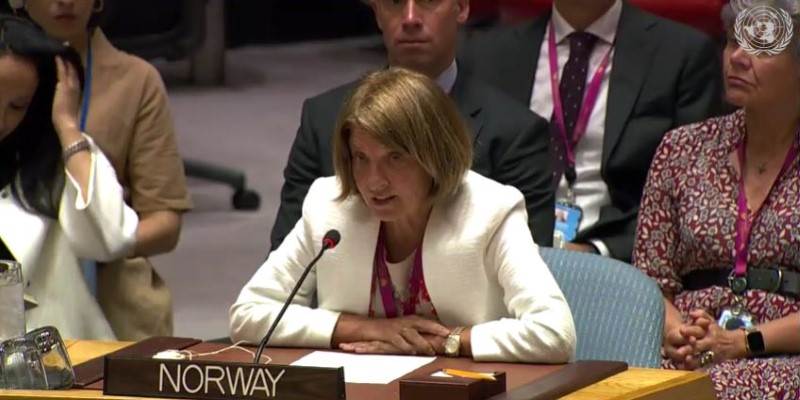President,
I speak on behalf of the Nordic countries – Denmark, Finland, Iceland, Sweden and my own country, Norway. We commend our colleagues from Peru for including this matter on the Security Council agenda. Both terrorism and organized crime threaten international peace and security.
Networks like ISIL and al-Qaida continue to depend on external financing to run their organisations, recruit fighters, buy weapons, spread propaganda and move across borders. This financing must be cut off.
In order to identify and stop illicit financial flows to terrorist organisations and criminal networks, we must disrupt the links between organised crime and terrorism. We must combine measures targeting the profits from crime with measures targeting financial flows to terrorists.
Terrorist groups and organised crime networks often flourish where governance and state presence is weak. In these spaces, terrorist and organised criminal networks both use similar approaches to develop and run illicit economies. They seek to develop and exploit territories that are beyond the reach of law enforcement agencies, where they can safely recruit members and raise funds.
Traditional sources of financing of illicit activity have typically included drug trafficking and kidnapping for ransom. Examples of newer sources include illicit exploitation and taxation of gold, oil and other natural resources. Both terrorist organisations and criminal networks use violence, illicit sources of revenue and political ideology to achieve social, financial and political goals.
International cooperation is crucial in combating these developments. We need effective coordination. The UN Headquarters in New York and the UN Offices in Vienna must work more effectively together, including by making the best possible use of existing presences in the field.
As we strive to disrupt illicit financial flows and terrorist financing, we must also make sure that our efforts do not create barriers for legitimate flows and financial inclusion. To ensure this and find best solutions, we need cross-sectoral cooperation among humanitarian, financial and counter-terrorism experts.
We welcome the 2018 Addendum to the Madrid Guiding Principles to prevent violent extremism and radicalisation in prisons. We also welcome The Hague Good Practices on the Nexus between Transnational Organized Crime and Terrorism developed by the Global Counterterrorism Forum.
We must address the role that prisons play in dealing with terrorist and violent extremist offenders, as well as with those in risk of being radicalized while in prison. ISIL in particular have consciously targeted people with a criminal past to offer them a narrative to joining terrorism.
Policies to address terrorism and organized crime should be part of a broader strategy to reduce vulnerability. We must strengthen security sector reform and the rule of law.
We encourage expanding and developing initiatives to deal more effectively with the nexus between terrorism and organised crime. The aspects of these global security challenges are closely connected. They must be addressed both within the security pillar, and as part of advancing Agenda 2030 for Sustainable Development.
Only then can we truly disrupt the links between terrorism and organises crime.
Thank you.
